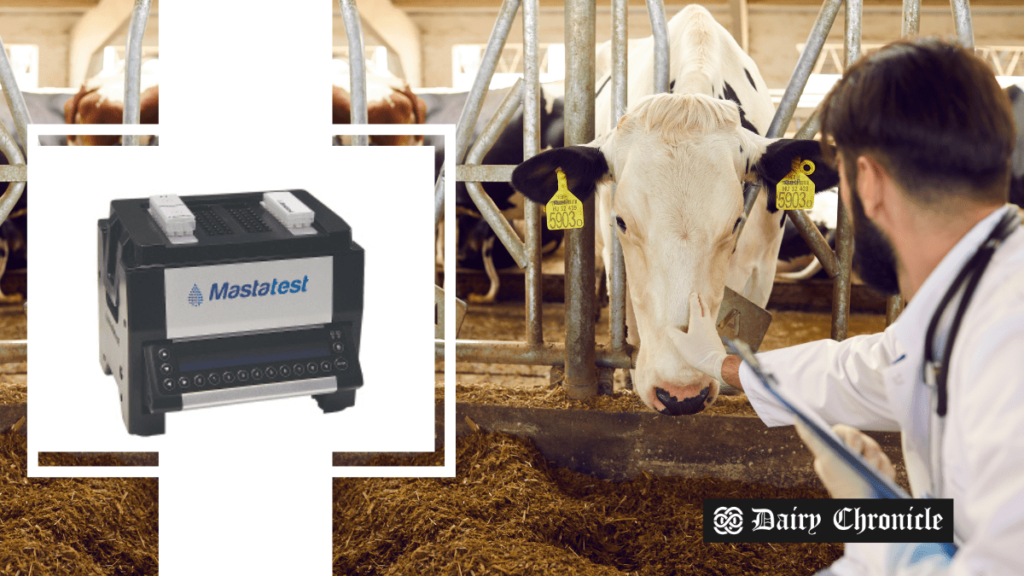Mastatest, developed by Mastaplex, is an innovative diagnostic tool that helps dairy farmers detect bovine mastitis quickly and accurately. Originating from the University of Otago, the system reduces antibiotic use and enhances herd health, while boosting farm profitability.
Mastatest, developed by Mastaplex, provides dairy farmers and veterinarians with an innovative, patent-protected diagnostic tool designed for the quick and accurate detection of bovine mastitis. Originating from research conducted at the University of Otago in New Zealand, this cutting-edge system simplifies the treatment process for both clinical and subclinical mastitis, which is a leading cause of reduced milk production, higher veterinary costs, and poorer overall herd health.
Mastitis affects millions of dairy cows worldwide and significantly impacts dairy farm profitability by lowering milk yields and increasing medical costs. Early detection and accurate diagnosis are key to reducing the severity of outbreaks and preventing unnecessary antibiotic treatments, which can lead to milk withdrawal periods.
How Mastatest Works: A Step-by-Step Breakdown
- Milk Sample Collection: Farmers or veterinarians take milk samples from cows suspected of having mastitis, whether they exhibit clinical symptoms or are subclinical cases.
- Cartridge Placement: The sample is inserted into a specialized testing cartridge designed for use with the Mastatest system.
- Lapbox Processing: The cartridge is then placed into the Lapbox, a device that detects bacterial growth by observing color changes in the milk sample through an electronic eye.
- Cloud-Based Analysis: The Lapbox transmits data to the cloud, where proprietary algorithms analyze the sample. Results are provided within 24 hours via email, offering farmers critical information, such as:
- Presence or absence of bacteria
- Bacterial species identification
- Recommendations for targeted antibiotic treatment
This fast and automated process eliminates the need for traditional milk culture techniques, which can take several days, and helps farmers make quicker, more informed treatment decisions.
Clinical Impact: Reducing Unnecessary Antibiotic Use
One of the standout features of Mastatest is its ability to identify cases where antibiotics are not necessary. By reducing the blanket use of antibiotics, the system minimizes antibiotic resistance risks and allows farmers to avoid the mandatory milk withholding periods associated with antibiotic-treated cows. In fact, clinical trials showed that farms using the system experienced a 24% reduction in antimicrobial usage without any negative impact on bacteriological cure rates or clinical recovery.
Real-World Testing in New Zealand
During the development phase, Mastatest was trialed on seven spring calving dairy farms in the Canterbury and Otago regions of New Zealand. These farms, serviced by Vetlife New Zealand Ltd., were selected for their interest in on-farm diagnostic solutions for mastitis and their willingness to follow a strict study protocol.
The study involved:
- 6,467 cows calving, of which 608 were diagnosed with clinical mastitis
- A total of 648 affected quarters across these cows
- 259 quarters analyzed using non-selective treatment and 276 quarters using selective treatment
Results indicated that the on-farm diagnostic system allowed farmers to make more informed therapeutic decisions, reducing unnecessary treatments while maintaining herd health.
Benefits Beyond Speed: Improved Treatment Outcomes
Mastatest’s comprehensive approach not only speeds up the diagnostic process but also enhances treatment outcomes. By accurately identifying the type of bacteria causing the infection, the system helps farmers choose the most effective antibiotic, improving cure rates and reducing the duration of time cows spend out of production. Additionally, the system is designed to be used daily, making it a practical tool for farms with high mastitis incidences.
Future Outlook: Revolutionizing Dairy Farming
As antibiotic resistance continues to be a global concern, innovations like Mastatest play a crucial role in promoting sustainable and responsible farming practices. By offering a faster, more accurate, and user-friendly solution for diagnosing mastitis, Mastaplex aims to improve animal welfare and productivity on dairy farms around the world. The system’s success in New Zealand has positioned it as a potentially transformative tool for dairy industries worldwide, helping farmers protect their bottom line while ensuring the health and well-being of their herds.



